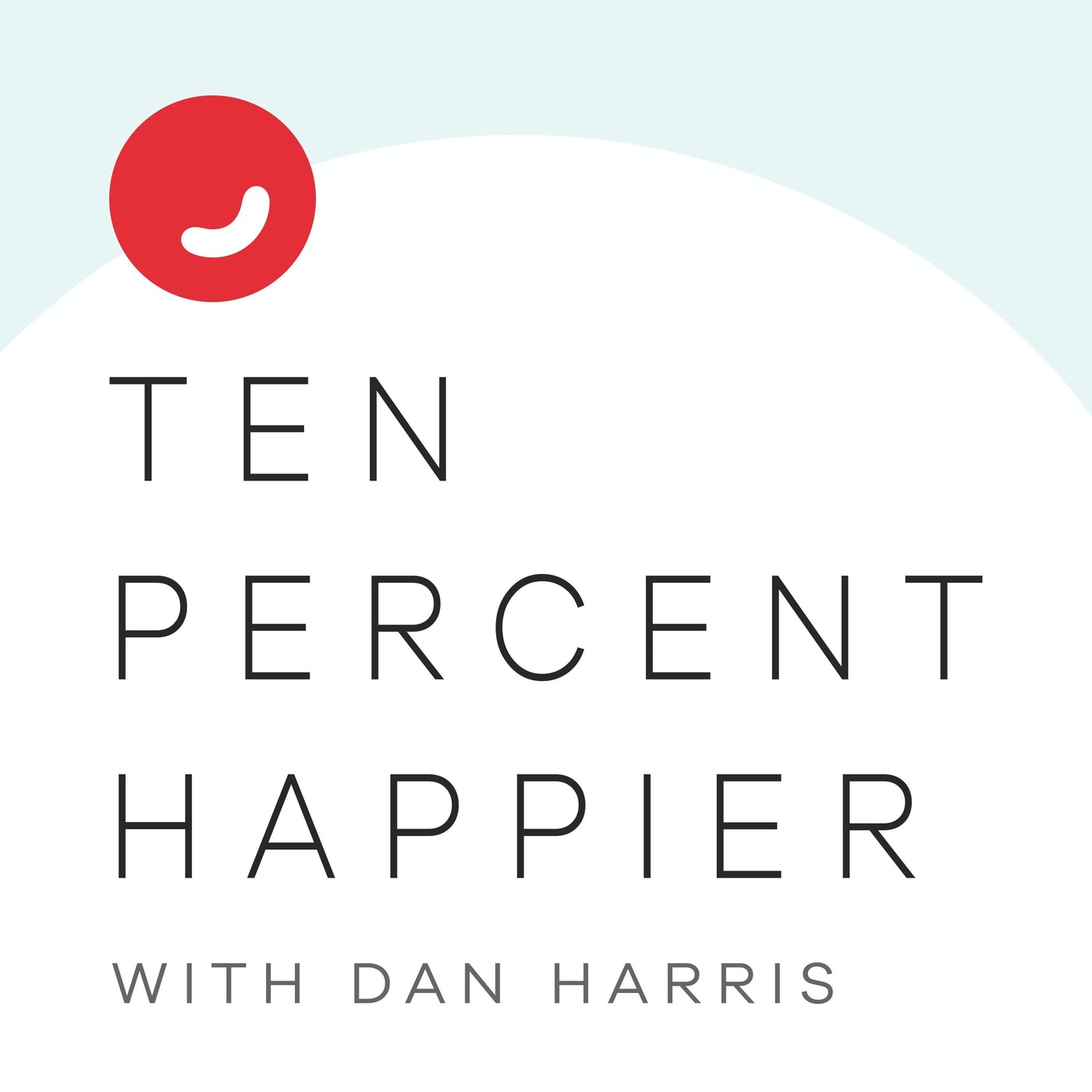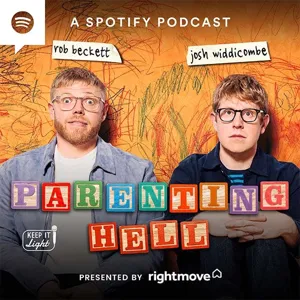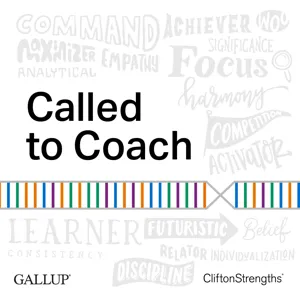Podcast Summary
The Science and Pleasure of Civility in the Workplace: Civility in the workplace leads to individual performance and overall happiness. Strategies to deal with uncivil individuals include practicing civility oneself and meditation, which boosts civility and improves mental health.
Professor Christine Porath, an expert in civility, emphasizes the importance of civility in the workplace for individual performance and overall happiness. She suggests that being civil is not only scientifically rigorous but also pleasurable for the brain. Porath recommends strategies to deal with uncivil individuals and encourages practicing civility oneself. Dan Harris, the host, shares his personal experience of how meditation has helped him boost his civility and improve his overall well-being during challenging times. Meditation, as Harris explains, has been a calming influence and a helpful tool for processing thoughts and letting go of control. Porath's work aligns with Michael Singer's philosophy of surrendering and letting go of things, which Harris also mentions as beneficial for mental health. Overall, the episode highlights the significance of civility and meditation in personal and professional growth.
Focusing on the present and creating healthy environments: Incivility and toxic workplaces harm cognitive performance and can lead to serious consequences. Promoting civility can help individuals and organizations thrive.
Both personal experiences and research highlight the importance of focusing on the present and creating healthy, positive environments, whether in relationships or at work. The costs of incivility and toxic workplaces can be enormous, affecting cognitive performance and even leading to serious consequences in high-stakes situations. By studying the consequences of workplace toxicity and promoting civility, we can help individuals and organizations thrive. The speaker's own experiences with a toxic workplace and her father's health issues inspired her to pursue a career in this field.
Workplace incivility impacts cognitive functioning: Exposure to incivility and rudeness in the workplace can negatively impact cognitive functioning, leading to increased errors and slower performance, affecting both work and personal lives.
Incivility and rudeness in the workplace can have serious consequences. Exposure to such behavior can negatively impact cognitive functioning, leading to increased errors and slower performance. This is not only detrimental to the workplace but can also affect personal lives and relationships. Research shows that medical teams, for instance, can make mistakes when subjected to rude behavior. Moreover, even witnessing such behavior can impact cognitive functioning. This issue is more prevalent than one might think, with many people admitting to taking it out on their loved ones or even strangers. The root cause of such behavior is often a lack of self-awareness, as most people who engage in uncivil behavior do not do so for enjoyment but out of ignorance. It is essential to recognize and address this issue to ensure a productive and healthy work environment.
Many people believe they're self-aware but aren't, leading to uncivil behavior with significant costs for organizations: Lack of self-awareness can lead to incivility, costing organizations millions annually, while negatively impacting performance
While the majority of people believe they are self-aware, the truth is that only a small percentage actually are. This lack of self-awareness can lead to uncivil behavior in the workplace and beyond, which can have significant negative consequences. According to research, when people are treated rudely or disrespectfully, they may intentionally cut back on work efforts, lose time worrying about the incident, take it out on customers, or even leave the company. The cost of incivility can add up quickly for organizations, with estimates suggesting it can cost millions of dollars annually. Despite this, some progress has been made as more organizations are paying attention to creating more positive, civil cultures. However, it's important to note that experiencing incivility can also negatively impact performance, and research has shown that those who experience it function much worse than those who don't. To address this issue, getting a 360-degree review or feedback from others can help increase self-awareness and improve behavior.
The effects of incivility at work ripple out to individuals and organizations: Incivility at work can decrease creativity, increase aggressive thinking, and decrease the likelihood to help others. Organizations can mitigate this issue by recruiting and selecting civil employees and modeling civil behavior. Individuals can speak up and model civility to create a positive work environment.
Witnessing incivility at work can have detrimental effects on individuals and organizations, similar to those who experience it directly. These effects include decreased creativity, increased aggressive thinking, and a reduced likelihood to help others. Organizations can take steps to mitigate this issue by focusing on recruiting and selecting employees who exhibit civility, as uncivil behavior can spread quickly like a virus. Small actions, such as making eye contact and smiling when within ten feet of someone, can also contribute to a more civil workplace culture. Additionally, individuals can take steps to address incivility in their workplaces by speaking up when they witness it and modeling civil behavior themselves. It's important for both individuals and organizations to recognize the impact of incivility and take action to create a more positive and productive work environment.
Leaders must model civility and respect in the workplace: Leaders' behavior sets the tone for workplace culture, and modeling civility and respect as core values can lead to improved employee satisfaction, better work environments, and positive collaboration.
Creating a culture of civility and respect in organizations goes beyond just setting rules or expectations. It requires leaders to model the behavior they want to see and address unconscious biases. While some may view it as a suggestion rather than a rule, the benefits of such a culture can significantly improve individual and organizational dynamics. Research shows that leaders' behavior sets the tone for the workplace, and toxic behavior from top leaders can permeate the organization. Therefore, it's crucial for leaders to lead by example and embrace civility and respect as core values. Additionally, providing training in this area can lead to improved employee satisfaction and overall better work environments. Ultimately, creating a culture of civility and respect is about striving for positive collaboration, respect, and staying away from biases and negativity.
Creating a culture for giving and receiving feedback: Feedback is essential for growth, but individuals in power may receive less honest feedback. Organizations should create a culture where giving and receiving feedback is valued and protected, using methods like anonymous 360 assessments or peer feedback.
Feedback, whether it comes from a structured 360 assessment or informal peer feedback, is crucial for personal and professional growth. However, as individuals rise in power and privilege, they often receive less honest feedback, making it essential for organizations to create a culture where giving and receiving feedback is valued and protected. Anonymous feedback through a 360 assessment can be especially helpful, as people are more likely to share their honest opinions without fear of retaliation. If an organization cannot provide a formal 360 assessment, peer feedback can be an effective alternative. It's important to remember that feedback is a gift and should not be seen as negative but rather as an opportunity for development. Kim Scott's book "Radical Candor" provides valuable insights on how to give and receive feedback with care and candor. Ultimately, the goal is to create a work environment where people feel comfortable sharing constructive criticism to help each other improve.
Feedback in Toxic Work Environments: When in toxic work environments, prioritize self-protection by sharing feedback safely, seeking help, or avoiding the source of toxicity to maintain productivity and well-being.
Individuals in toxic work environments should aim to provide feedback to their toxic boss or co-worker if they feel safe doing so. If not, they should seek help from HR or a mentor to find a safe way to share the information. If providing feedback is not an option, it's essential to focus on protecting oneself by avoiding the toxic person as much as possible. De-energizing relationships, even if unintentional, can have a significant impact on productivity and overall well-being. Research shows that bad experiences are more powerful than good ones, making it crucial to minimize exposure to toxic situations to maintain mental and physical health.
The Impact of Workplace Incivility and Bullying on Health and Harassment: Workplace uncivility and bullying, regardless of intent, can negatively affect individuals' health and contribute to harassment. Civility training can help create a more respectful workplace and reduce instances of bullying and harassment.
Workplace uncivility and bullying, even if not intentional, can have serious health consequences for individuals, including heart attacks, cancer, diabetes, and more. This issue is not limited to any specific gender, but research suggests women may have a higher bar for civility and experience passive-aggressive forms of uncivil behavior. A toxic work environment where disrespect is the norm can also lead to sexual harassment. Civility training, on the other hand, has been shown to reduce bullying and harassment and create a more respectful workplace. Ultimately, striving for a civil, respectful workplace culture is essential for minimizing the risk of harassment, lawsuits, and other negative outcomes.
Recognize and Improve Blind Spots: Seek feedback, reflect on behavior, prioritize self-care (meditation, mindfulness, exercise, sleep) to become better versions of 'good-ish' people and reduce uncivil behavior.
We all have the potential to contribute to incivility, and it's essential to recognize our blind spots and work on improving ourselves. This can be achieved through seeking feedback from others, reflecting on our behavior throughout the day, and taking care of ourselves through practices like meditation, mindfulness, exercise, and adequate sleep. By doing so, we can become better versions of "good-ish" people and improve our interactions with others. A lack of sleep is a significant contributor to uncivil behavior, so prioritizing rest is a simple yet effective way to start.
The Importance of Self-Care for Leaders: Leaders who prioritize self-care and encourage it in their teams have a positive impact on relationships and organizational culture.
Self-care is crucial for individuals and leaders to build positive relationships and create a healthy organizational culture. The speaker, who underwent a 360-degree feedback process, recognized the importance of self-awareness and stress management in improving behavior and work-life balance. He emphasized the need for leaders to prioritize self-care and encouraged a collaborative environment that values relationships. Research from Harvard Business Review supports this notion, indicating that leaders who encourage and role model self-care have a greater impact on their teams. Despite the challenges of modern work life, including technology and societal pressures, the speaker emphasized the importance of making self-care a priority for personal growth and organizational success.
Improve Interpersonal Behaviors: A Responsibility for All: Identify and work on interpersonal behaviors through self-assessment, practice respect, and continuous improvement.
Everyone, regardless of position or rank, has the ability and responsibility to improve their interpersonal behaviors. Christine Porath, a researcher on the topic, emphasizes that our actions, whether at home or in the workplace, can significantly impact those around us. To help identify areas for improvement, Porath offers a free self-assessment test on her website, which assesses behaviors such as using please and thank you, sharing credit, and using appropriate communication methods. Porath herself is a work in progress, sharing that she once struggled with interrupting others. A simple solution she found was carrying a notebook to jot down thoughts instead of interrupting mid-conversation. This not only helps the interrupter but also signals respect and attentiveness to the person speaking. Overall, the focus is on continuous improvement and recognizing the impact of our actions on those around us.
The Importance of Kindness and Civil Behavior in the Workplace: Prioritizing relationships and being kind and civil in the workplace leads to professional success as shown in research by the speaker and Adam Grant. Those perceived as civil are more likely to be viewed as leaders and perform better.
Prioritizing relationships and being kind and civil in the workplace can lead to professional success. The speaker, an academic and consultant, shares her personal experience and research findings that support this idea. She mentions her tendency to work independently but emphasizes the importance of choosing who to spend time and energy on. The research of Adam Grant, a friend of hers, also supports this notion, showing that being a giver in the long run leads to better professional outcomes. The speaker's own research on civility also shows that those perceived as more civil are more likely to be viewed as leaders and perform better. Overall, the message is that being kind and civil in the workplace is not only good for personal well-being but also for professional growth.
Improving communication and leadership through meditation: Meditation can enhance listening skills and emotional intelligence, but respectful communication and valuing employees are essential for a productive work environment.
Respectful communication and leadership are crucial for creating a productive and engaged work environment. Meditation can be a helpful tool in improving listening skills and emotional intelligence, making leaders more effective in their interactions with team members. However, it's essential to remember that meditation is just one component of continuous self-improvement, and there's always room for growth. Doug Conant, former CEO of Campbell Soup Company, transformed his organization by focusing on civility and respect, understanding that tough conversations are necessary for growth. Leaders should aim to be "tough-minded on standards, but tender-hearted with people," paying close attention to daily interactions and making employees feel valued. It's important to remember that creating a psychologically safe work environment, where employees feel comfortable giving feedback and sharing ideas, leads to increased team effectiveness.
Open communication and civility foster growth: Provide constructive feedback, maintain civility, and practice open communication for personal and organizational growth. Acknowledge discomfort during meditation without judgment and focus on the breath instead.
Open communication and radical candor are essential for personal and organizational growth. It's important for individuals and leaders to provide constructive feedback and maintain civility, even in challenging situations. Small acts of kindness and civility can positively impact moods and spread throughout an organization. Regarding meditation, it's common to experience physical discomfort or the urge to scratch during practice. Traditional instruction suggests acknowledging these sensations without judgment and focusing on the breath instead of acting on the impulse. It's a part of the learning process and not a source of shame. Remember, open communication and civility are key to personal and professional growth, and small actions can make a big difference.
Become more aware of reactions to discomfort: Through meditation, learn to observe reactions to discomfort without judgment, leading to greater ease and mindfulness in daily life, effective communication, and compassionate assertiveness.
Meditation can help us become more aware of our reactions to discomfort, whether it's physical sensations like itching or emotional discomfort. By tuning into these sensations and observing our thoughts without judgment, we can learn to break free from the cycle of mindlessly reacting to what feels good or bad. This can lead to greater ease and mindfulness in our daily lives, helping us to respond to situations rather than being constantly pulled by our desires and aversions. Awareness doesn't care about these reactions, and by practicing mindfulness, we can learn to be more present and intentional in our interactions with others, even when it comes to difficult conversations or avoiding conflict out of fear of hurting someone's feelings. Meditation can also help us develop the courage and clarity to communicate effectively and assertively, while still being kind and compassionate.
Practicing Compassion Without Being a Doormat: Compassionate actions don't require self-sacrifice or neglecting personal needs. Instead, practices like 'idiot compassion,' 'fierce compassion,' and 'self-compassion' promote balance and effective giving.
Compassion does not mean being a doormat or giving away all that you have without consideration for yourself. Instead, there are practices such as "idiot compassion," "fierce compassion," and "self-compassion" that allow individuals to stand up for themselves while still being compassionate towards others. The concept of "fierce compassion" refers to being determined and relentless in protecting oneself or the underdog, while "self-compassion" involves communicating clearly and empathetically with others about one's needs. Givers, who are generous in the workplace, can be successful if they give in a wise and balanced way. It's important to remember that compassion can be practiced effectively without being a doormat or becoming taken advantage of.
Balancing assertiveness and kindness: Assert yourself and protect the vulnerable without resorting to cruelty or meanness. Share podcasts that resonate to help them grow.
Finding a balance between asserting oneself and being kind is crucial for personal growth and success. It's possible to stand up for oneself and protect the vulnerable without resorting to cruelty or meanness. Sharing episodes of podcasts that resonate can help the podcast grow and reach more people. The Big Flop podcast explores the biggest pop culture fails, including the reality TV show The Swan, which promised a dream opportunity but turned into a viewing nightmare with isolation, berating, and physical transformations followed by judgement from a panel. Remember, you can write a review or share episodes to help the podcast grow.






